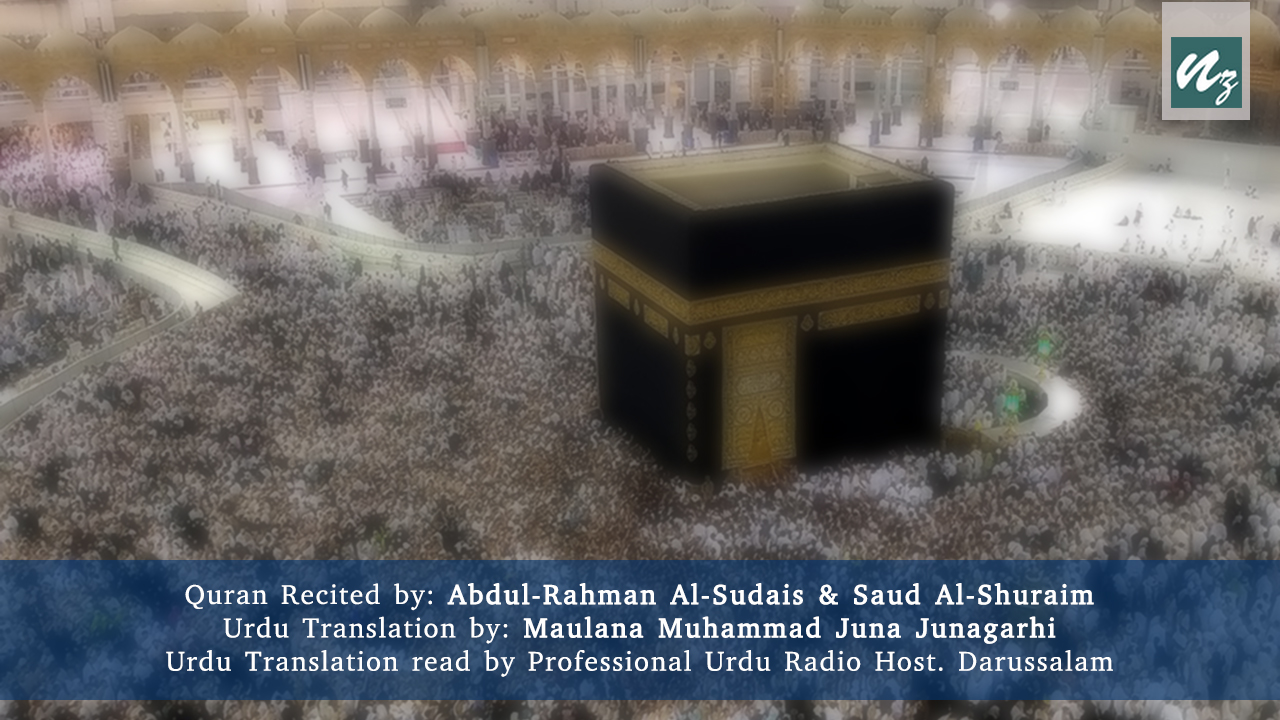Read Salah (Namaz) with Consciousness and Humility
Humran, the freed slave of ‘Uthman, said:
“Uthman b. ‘Affan called for ablution water and this is how he performed the ablution. He washed his hands thrice. He then rinsed his mouth and cleaned his nose with water (three times). He then washed his face three times, then washed his right arm up to the elbow three times, then washed his left arm like that, then wiped his head; then washed his right foot up to the ankle three times, then washed his left foot like that, and then said: “I saw the Messenger of Allah (may peace be upon him) perform ablution like this ablution of mine.” Then the Messenger of Allah (may peace be upon him) said: “He who performs ablution like this ablution of mine and then stood up (for prayer) and offered two rak’ahs of prayer without allowing his thoughts to be distracted, all his previous sins are expiated.” Ibn Shihab said: “Our scholars remarked: This is the most complete of the ablutions performed for prayer.”” (Sahih Muslim, Book #002, Hadith #0436 and Sahih Bukhari)
You should know that Salah consists of pillars, duties, and Sunnah. The spirit of Salah is intention, devotion, and contemplation of heart. Without contemplation, invocation is of no avail since this will be futile utterance. By the same token, all other acts of Salah will not bring forth its avowed fruits, i.e., the act of Qiyam (standing) connotes service and Sujud (prostration) implies humility and glorification, which will never be attained without attention. Allah, Most High, says, “It is not their meat nor their blood, that reaches Allah: it is your piety that reaches Him:” (Surah Al Hajj 22:37)
The following three are the yardstick of any acceptable Salah:
1. Consciousness : It means to show indifference to all worldly interests and have absolute consciousness of Allah, Most High. The cause of such consciousness is decisive intention since the man who has decisive intention to do something, necessarily puts his heart to it. Consciousness, in fact, differs according to the strength of belief in the Hereafter and scorn of this world. Therefore, if you miss consciousness in Salah, you should know that the root-cause of this is weakness of faith, and so you should exert yourself to strengthen and bolster it.
2. Reflection on the words; this is the second step after consciousness : Consciousness may be present without grasping the meaning, and so attention should be directed to grasping the meaning by refraining from thinking of other matters.
3. Glorification and fear of Allah, Most High, which emanate from two facts : realizing the Majesty and Magnificence of Allah, and looking down upon one’s self, which would result in humility and consciousness. Hope is also an important factor in Salah. The one who offers Salah should hope for the reward of Allah, and fear the punishment due to his imperfection.
The worshiper should contemplate on every act of Salah. When he hears the Adhan (Call to Salah), he should remember the call on the Day of Judgment, and prepare himself to the answer, thinking how to reply. When the worshiper covers his private parts, he should remember his concealed vices which no one knows except Allah, Most High, and which require repentance.
When the worshiper faces the Qiblah (Direction of Salah), he turns his face towards the House of Allah and turns his back to all other directions. No doubt, directing his heart towards Allah is worthwhile.
When you say: “Allah is Greatest”, your heart should not belie your tongue. If you believe that there is something greater than Allah, you will be a liar. Be cautious.
When you say: “I seek refuge in Allah from the accursed Satan”, you should take into account that you resort to Allah, Most High. In this case, if your heart is not in tune with your tongue, what you say will be nonsense and irrational. Try to grasp the meaning of what you say.
When you say: “Praise be to Allah, the Cherisher and Sustainer of the Worlds,” you should ponder over the meaning of these words. Also, you reflect on Allah’s mercy when you read: “Most Gracious, Most Merciful”. Think about Allah’s power when you read: “Master of the Day of Judgment”. In this way, one should reflect on what he reads or say in Salah.
It is reported that Zararah ibn Abi Awfa (may Allah be pleased with him) fell dead when he recited the Quranic verse, “Finally, when the trumpet is sounded.” (Surah Al Muddaththir 74:8) This is, no doubt, is due to his imagination of this horrible scene.
When bowing, try to show humility to your Lord. Likewise, you should be more humble when prostrating since you place yourself in its proper and original position, namely, the earth from which you have been created. In this case, try to reflect on what you say.
Finally, you should know that performing Salah in such a manner purifies and enlightens the heart, which, in turn, could behold the Glory of Allah. In fact, no one but the devout scholars can grasp these meanings.
 navedz.com a muslim's Quest for the truth
navedz.com a muslim's Quest for the truth








